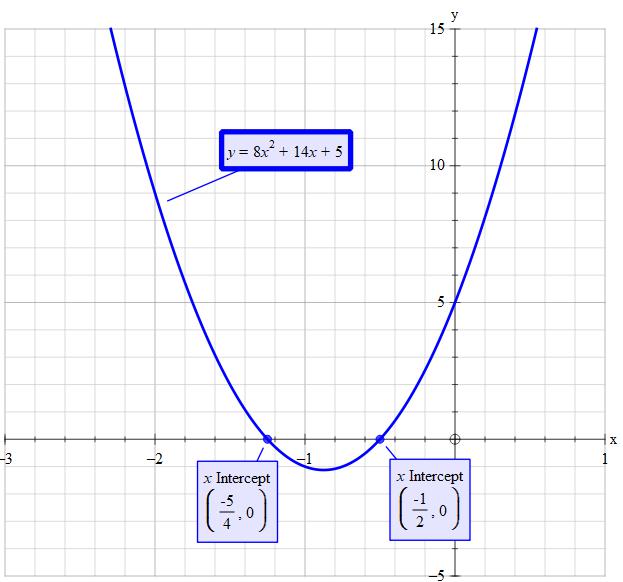How do you solve #8x^2 + 14x + 5 = 0# by completing the square?
3 Answers
Explanation:
#"using the method of "color(blue)"completing the square"#
#• " the coefficient of the "x^2" term must be 1"#
#"factor out 8"#
#rArr8(x^2+7/4x+5/8)=0#
#• "add/subtract "(1/2"coefficient of the x-term")^2" to"#
#x^2+7/4x#
#8(x^2+2(7/8)xcolor(red)(+49/64)color(red)(-49/64)+5/8)=0#
#rArr8(x+7/8)^2+8(-49/64+5/8)=0#
#rArr8(x+7/8)^2-9/8=0#
#rArr8(x+7/8)^2=9/8#
#"divide both sides by 8"#
#rArr(x+7/8)^2=9/64#
#color(blue)"take the square root of both sides"#
#sqrt((x+7/8)^2)=+-sqrt(9/64)larrcolor(blue)"note plus or minus"#
#rArrx+7/8=+-3/8#
#"subtract "7/8" from both sides"#
#rArrx=-7/8+-3/8#
#rArrx=-7/8-3/8=-10/8=-5/4#
#"or "x=-7/8+3/8=-4/8=-1/2#
Explanation:
Given:
Write as:
The 'perfect' square related to
but
~~~~~~~~~~~~~~~~~~~~~~~~~~~~~~~~~~~
~~~~~~~~~~~~~~~~~~~~~~~~~~~~~~~~~~~~

Explanation:
We have,
Now we have to find
Here,
Formula for
So,from
Note: Formula


